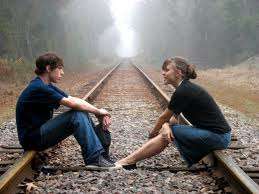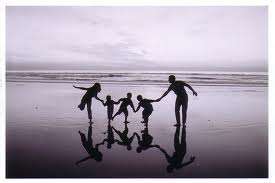What does it really mean to reflect? Some formal Webster definitions include:
- To give back or exhibit, as an image, likeness or outline
- To make manifest or apparent
- To realize, consider
- To think quietly and calmly
- To express a thought or opinion resulting from reflection
- To tend to bring reproach or discredit
- To bring about a specified appearance or characterization
- To have a bearing or influence
- To turn into or away from course
- To bend or fold back
I find these various definitions fascinating when I consider the present state of the world. It seems to me that there is a lot of reflecting going on, and I’m not so sure it’s happening in ways that are truly beneficial to humanity. These definitions themselves seem to almost contradict one another, indicating to me that we can work with the light side or the shadow side of reflection.
I have always felt that I can find myself in the reflection of others. To me, this idea implies that what we see in others, we have in ourselves. This is a very humbling thing to consider when we look at what we see! It can be so easy to pass judgment and speak ill of others. Yet, what does this mean for ourselves? How might we be seeing our own reflection in the very person/situation we are observing? If we see ourselves in the other, does that mean that what we see is exactly what we are? How can we interpret what we observe and find our own selves in what we see?

I grew up hearing phrases like “Look in the mirror first,” or “People who live in glass houses shouldn’t throw stones,” and of course there is the Christian saying, “Let he who is without sin cast the first stone.” I didn’t really understand what these meant when I was young, but something about them stuck with me. As with anything, there is a light and a shadow side to what we see and experience. On the light side, I took to heart the idea that it was important to pay attention to my own actions first and foremost, before passing judgment on others. This has been a wonderful inspiration for my own personal development, helping me to get to know myself and understand more about who I am and what I am here to learn. On a darker side, in my own life, I took these sayings so deeply within that I began to think there must always be something wrong with me if I’m seeing things in others or in the world that I didn’t like. This led to a sense of unworthiness and a lack of acceptance for who I am. I have come to learn there are healthy versions of reflection, and unhealthy versions.
Something that dawned on me a number of years ago was the idea that if we see our own reflection in others, then when we admire something about someone, that too must be in us. This was a huge revelation for me, as I had tended toward focusing on everything that was “wrong” with me. As I began to consider what I liked and admired about others and how those traits might be in myself, I became inspired. I tried things I hadn’t tried before. I spoke in ways that I hadn’t had the courage to speak before. I even developed confidence as I admired confidence in others and considered that this same confidence could be found within me. Coming to the realization that both our strengths and our learning opportunities are reflected in others helped me to focus less on the dark side of reflection and find a balance which allowed me to discover more about my full essence.

Sometimes, as I would consider how something I saw in another could possibly be in me, I found myself at a loss. I simply didn’t have the capacity from my perspective to see what was there in myself. This is where working in community becomes helpful, be it with a friend, a family member, a mentor, a coach, a teacher, etc. These other perspectives are invaluable to helping us come to see our full selves. At the same time, it is important to note that these are just other perspectives, no more or less valid than our own. If we fall into the trap of devaluing our own perspective and taking on the perspectives of others, we may “bring about a specified appearance or characterization” (as one of the definitions above states) that is not our own. A good rule that I’ve come to live by is the idea that every perspective is worthy of being considered as true. If we ask ourselves, “How might this be true about me?” then we are open to growing and shifting. We are also only considering that there could be some truth, not simply believing that what others see/think/say is always true for us.

The definition indicating that reflection is to “turn into or away from course” is one that particularly intrigues me. If we find ourselves in others, it could be said that as we reflect, we find our true course, the course that leads to our higher “I.” Yet, with this definition it would seem that as we reflect, we could also turn away from course. I interpret this in two ways, one is that we might turn away from a course that is not aligned with our higher self, reflecting something that helps us to move toward our truth. Another interpretation is that we could reflect and turn away from the course of our authentic self. How could this happen? How could simply reflecting cause us to turn away from who we really are?
In my own life, I’ve noticed that sometimes, the reflections we see are painful in that they speak to our conscience. I wrote a two part article a while back about the importance of connecting with our conscience (part 1, part 2), and how doing so may generate a sense of shame or guilt. Sometimes, when we reflect, we see exactly how we are off course, how we are not following our conscience and how we are not living according to our authentic self. Seeing this might actually jolt us into alignment, or it could make us turn further away from our course, depending upon how willing we are to be accountable and responsible for our actions.
Another way we might steer off course is in our artificial or virtual reflections. In today’s culture, social media is becoming so prevalent as a way of communing. But is it really communing? Are we really reflecting with the friends and relationships we have on-line? We might think we are, but how easy it is to hide behind a computer screen when anything difficult comes up. How easy it is to avoid the fullness of the interaction that allows our soul to grow! I personally feel that the concept of social media and virtual relationships is something that must be carefully navigated. There may well be benefits to the use of these technological tools, and we must use them with caution, understanding that they are not a replacement for the authentic reflection of true interactional relationships.

If one wants to find their true course, the path to their “I Am” self, to their Christ self, one must find themselves in the reflection of others. As we find within ourselves what we observe in others, we also find ourselves feeling deeper compassion and understanding for others. In coming to know ourselves better, we can come to know others better as well. Are you willing to be vulnerable enough to see your true self? Are you willing to expose yourself to the cathartic experience of true reflection?
